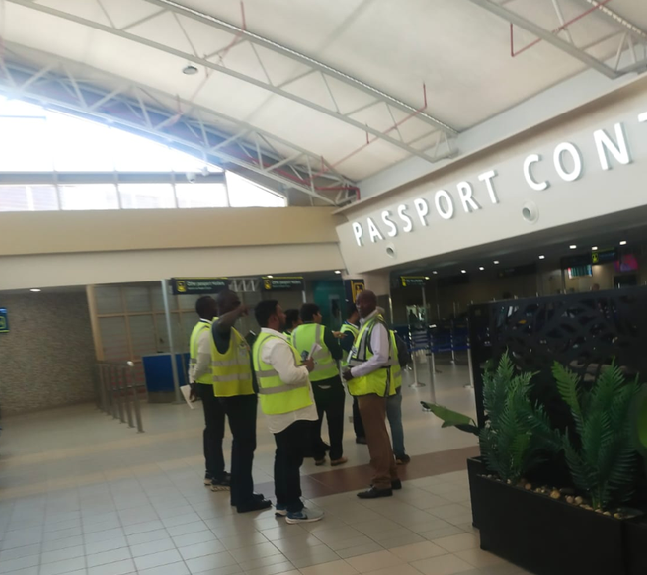Recent developments at Jomo Kenyatta International Airport (JKIA) have sparked major public concern as officials from Adani Airport Holdings Limited, in collaboration with Kenya Airports Authority (KAA) staff, were spotted inspecting parts of the airport.
This activity comes amid widespread unease about the lack of public participation in the ongoing discussions about the potential takeover of JKIA by the Adani Group, an Indian multinational conglomerate.
The controversy centers around an investment proposal submitted by Adani to modernize JKIA’s aging infrastructure under a Public-Private Partnership (PPP).
The proposal includes the construction of a new passenger terminal, a second runway, and the refurbishment of existing facilities.
These plans were reportedly approved by the Cabinet as part of the JKIA Medium Term Investment Plan.
However, the process has faced backlash from various stakeholders, including civil society organizations and politicians, who are demanding transparency and public involvement.
Kisii Senator Richard Onyonka has been particularly vocal, raising concerns in the Senate about the lack of transparency in the deal.
He has called for detailed disclosure of the contract terms, the selection process for Adani, and the implications of the proposed 30-year concession model.
Onyonka, along with others, is concerned that the concession could lead to significant changes in how the airport is managed and the potential for increased costs to airlines and passengers due to Adani’s control over service changes.
In response to these concerns, KAA has assured the public that the proposal will undergo rigorous technical, financial, and legal reviews, and that no jobs will be lost as a result of the proposed upgrades.
The authority has emphasized that stakeholder engagement, including public participation, is a key part of the process, although critics argue that this engagement has been insufficient so far.
This situation highlights the broader issue of how public assets are managed and the importance of transparency and accountability in decisions that impact national infrastructure.
The scrutiny of the Adani deal at JKIA is likely to continue, with both the public and lawmakers demanding that the government ensure the interests of the Kenyan people are prioritized in any agreement.





















Add Comment